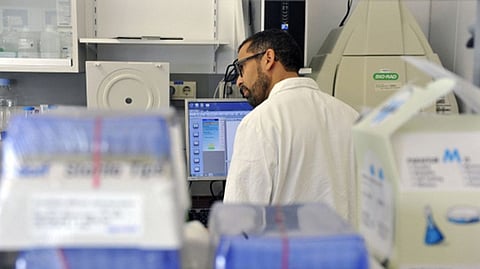Pakistan to receive COVID-19 test machine, critical equipment from IAEA
Equipment from IAEA to help boost Pakistan’s scientific and technical capacities

Islamabad: Pakistan is set to receive key equipment from the International Atomic Energy Agency (IAEA), which would help boost the country’s scientific and technical capacities to combat the novel coronavirus.
The Vienna-based IAEA will provide Pakistan a Polymerase Chain Reaction (PCR) machine, COVID-19 test kits, biosafety supplies and related equipment to support the country’s coronavirus response, according to the Foreign Office (FO).
“This equipment will augment Pakistan’s national capacity to conduct COVID-19 tests which are crucial in containing the spread of the disease,” read the FO statement. Pakistan’s Embassy in Vienna is coordinating with the IAEA for the early shipment of the equipment to Pakistan.
Pakistan deeply values the contribution of the IAEA in helping member states in their efforts to fight the global COVID-19 pandemic, says Pakistan FO spokesperson. “As a founding member of the Agency, Pakistan has continued to benefit from IAEA’S technical assistance in various fields including health, agriculture and energy” while contributing to Agency’s work in promoting peaceful uses of nuclear technologies.
IAEA is assisting more than 40 countries to enable them to use a nuclear-derived technique to rapidly detect COVID-19 to help tackle the pandemic. The first batch of supplies from IAEA for dozens of laboratories in Asia, Africa, Europe, Latin America and the Caribbean includes the diagnostic machines and kits, reagents and laboratory consumables to speed up national testing. “IAEA staff are working hard to ensure that this critical equipment is delivered as quickly as possible where it is most needed,” said IAEA Director General Rafael Mariano Grossi.
IAEA support to help enhance testing
IAEA’s support would help Pakistan streamline and enhance testing, which is crucial in containing the outbreak. Pakistan has significantly increased daily testing capacity from a few hundred in mid-March to 6,400 on April 17. However, experts term the response insufficient for a population of 220 million. The government seeks to increase the number of tests conducted to 20,000 a day in coming days, according to Health Minister Zafar Mirza. So far, Pakistan has conducted a total of 92,548 COVID-19 tests (as of April 18).
The World Health Organisation (WHO) has emphasised the crucial importance of testing since the beginning of the outbreak. Tracking down cases with symptoms, identifying and tracing the people they’ve contacted and quarantining them until no longer infectious are considered critical measures. WHO has urged the states to “Find, isolate, test and treat every case, to break the chains of transmission.”
Pakistan has reported nearly 143 deaths and over 7500 infections from the coronavirus as of April 18.
What is real time RT-PCR?
The most critical equipment offered by IAEA is the real time reverse transcription — polymerase chain reaction (real time RT-PCR) — one of the most accurate laboratory methods for detecting, tracking, and studying the coronavirus. The nuclear-derived DNA amplification method originally used radioactive isotope markers to detect genetic material from a virus in a sample but subsequent refining of the technique has now led to the use today of fluorescent markers instead.
“Real time RT-PCR is an established and accurate method to detect pathogens” said Ivancho Naletoski, technical officer at Joint FAO/IAEA Division for Nuclear Techniques in Food and Agriculture. “Laboratories will receive diagnostic kits and accessories needed for the analysis, disposable protective gear and equipment for the molecular detection of this specific viral genome.”
Sign up for the Daily Briefing
Get the latest news and updates straight to your inbox







